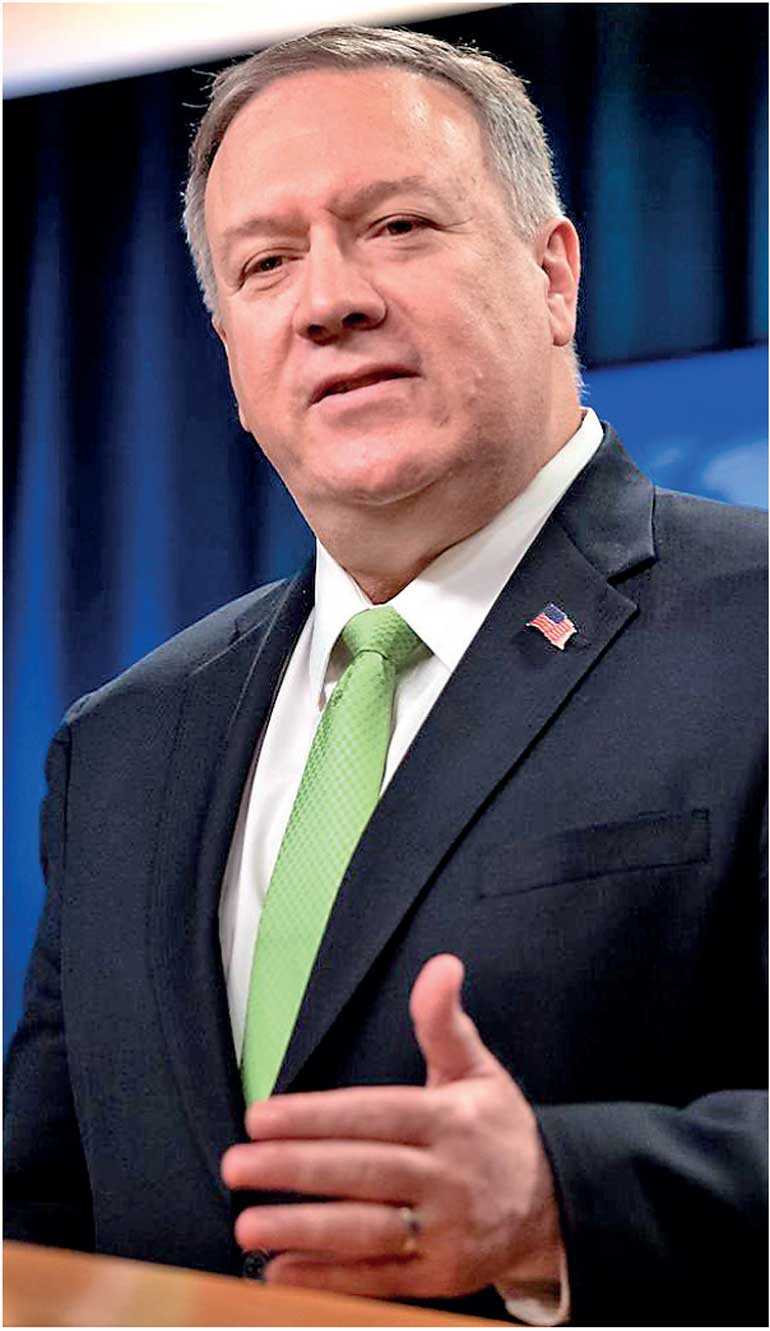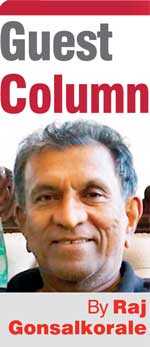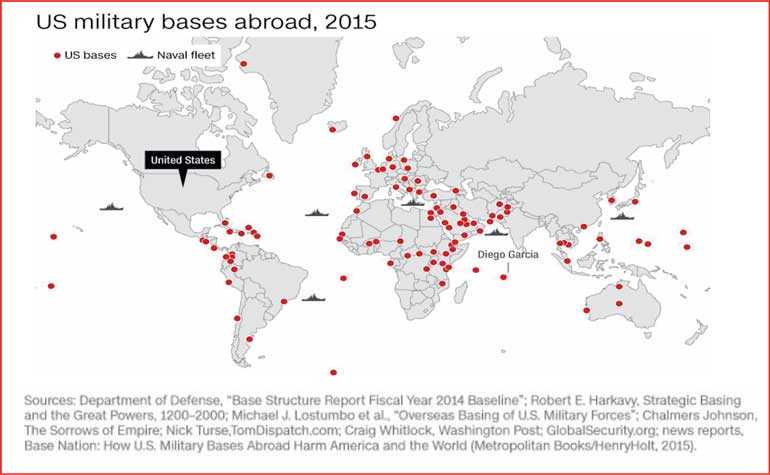Monday Feb 23, 2026
Monday Feb 23, 2026
Friday, 23 October 2020 00:00 - - {{hitsCtrl.values.hits}}

US Secretary of State Mike Pompeo
Nought from the Greeks towards me hath sped well.
So now I find that ancient proverb true,
Foes’ gifts are no gifts: profit bring they none – Sophocles (496 - 406 BC)
Don’t look a gift horse in the mouth is a proverb about not questioning the value of a gift. The proverb  refers to the practice of evaluating the age of a horse by looking at its teeth. A certain exception to this rule would be the MCC agreement, which reportedly is very high in the agenda of US Secretary of State Mike Pompeo’s visit to Sri Lanka next week.
refers to the practice of evaluating the age of a horse by looking at its teeth. A certain exception to this rule would be the MCC agreement, which reportedly is very high in the agenda of US Secretary of State Mike Pompeo’s visit to Sri Lanka next week.
In a wide-ranging article published in the Lankaweb (MCC LIES: Sri Lanka is not getting $ 480 m signing MCC posted on 18 October), Shenali Waduge has elaborated on this agreement and what it means to Sri Lanka in terms of the proposed gift. As she has rightly said, 327 million Americans are giving Sri Lanka $ 1.50 each ($ 480 m over five years) or US 30 cents per year.
There is also a saying that beggars should not be choosers. However, despite the impact of COVID, Sri Lankans are not beggars, therefore they must choose what is in their best interests. One million Sri Lankans working overseas remitted $ 7 billion per year until COVID hit Sri Lanka and the rest of the world.
As Shenali Waduge explains, the MCC funds will be released in tranches over five years if Sri Lanka meets numerous prerequisite conditions. It is these conditions and what it means to Sri Lanka were they to be met, that should occupy the minds of those who advocate the signing of this agreement. These are what is in the gift horse’s mouth and which looks like stench emanating conditions.
Despite the unpleasantness, Sri Lankans must look at these conditions remembering the old adage that there is nothing called a free lunch. It would be foolish to imagine that Sri Lanka is being given this gift for the sake of love and affinity. One should also consider the proverb not to trust Greeks bearing gifts.
As mentioned in the Phrase Finder (https://www.phrases.org.uk/meanings/beware-of-greeks-bearing-gifts.html), this proverb has its genesis is an allusion to the story of the wooden horse of Troy, used by the Greeks to trick their way into the city. It is recorded in Virgil’s Aeneid, Book 2, 19 BC: “Do not trust the horse, Trojans. Whatever it is, I fear the Greeks even when they bring gifts.”
Although no suggestion is made that the USA is an enemy of Sri Lanka, the section of the phrase “this proverb has its genesis is an allusion to the story of the wooden horse of Troy, used by the Greeks to trick their way into the city” has relevance, if one sits back and considers what is in this agreement for the US and whether it is indeed the horse of Troy being used to gain entry into Sri Lanka for its own strategic reasons.
Key reasons for interest in Sri Lanka
The US has two key strategic reasons to be interested in an entry into Sri Lanka. Firstly, the emergence of China as its competitor for world super power status and its influence in Sri Lanka. China already has a foothold with its investment in Hambantota, a port, an airport with a runway longer than in Katunayake, and vast acreage of land around the Hambantota Port given on a 99-year lease by the Sirisena/Wickremesinghe Government.
Although there is no Chinese military presence in Sri Lanka, it would be foolhardy to imagine that will not be a reality should a need arise for China for it to bring its military in if its interests in the region are threatened. Secondly, the future of the US bases in Diego Garcia.
In an article titled ‘Is the United States about to lose control of its secretive Diego Garcia military base?’ Jenni Marsh of CNN (11 March 2019) says: “Britain has now been instructed to properly finish the process of decolonisation, and return the Chagos Islands, located halfway between Africa and Indonesia, to Mauritius. The ruling, though non-binding, potentially creates a huge problem for the United States. Today, Diego Garcia is one of America’s most important – and secretive – overseas assets. Home to over 1,000 US troops and staff, it has been used by the US Navy, the US Air Force and even NASA – the island’s enormous runway was a designated emergency landing site for the space shuttle. Diego Garcia has helped to launch two invasions of Iraq, served as a vital landing spot for bombers that fly missions across Asia, including over the South China Sea, and has been linked to US rendition efforts.”
It is interesting to note the graphic of US bases throughout the world, and its base in Diego Garcia (Chagos Islands) and its key strategic position in the Indian Ocean, and its proximity to Sri Lanka. One should wonder whether the twin reasons for US interest in Sri Lanka are in fact the driving, motivating force for it to gain that entry through the MCC Agreement.
The Lowy Institute (https://www.lowyinstitute.org/the-interpreter/decolonise-diego-garcia-why-america-should-not-fear-mauritius) also mentions: “The United States military base on Diego Garcia has a problem: it is housed inside an unlawful jurisdiction, the British Indian Ocean Territory (BIOT). According to the African Union, UN General Assembly and a recent advisory opinion of the International Court of Justice, BIOT is a colonial holdover that violates the territorial integrity of Mauritius. Britain refuses to dismantle BIOT out of deference to its ally, the US. This is a mistake. Full decolonisation is in the interest of all sides. America’s support for British sovereignty over Diego Garcia is based on the assumption that London is a preferable ‘landlord’ to Port Louis. If this was ever true in the past, it is not true today. British control over Diego Garcia and the rest of the Chagos Archipelago is illegal, unpopular, unnecessary, and at odds with the idea of a ‘rules-based’ order in the Indo-Pacific. By contrast, Mauritius holds the keys to a long-term agreement over Diego Garcia that would be consistent with international law and beneficial to America’s broader strategic objectives in the region.”
While the Lowy Institute argues that the future of the base need not be a problem for the US should they negotiate with a willing Mauritius, there is an element of uncertainty over the future of this very vital base that serves US strategic objectives. In this context, it should not be unreasonable to assume that there could be a long term US interest in Sri Lanka on account of any developments in Diego Garcia that are detrimental to US interests.
Not in the best interests of Sri Lanka
This writer has argued in previous articles published in the Daily FT that the MCC Agreement taken in conjunction with two other agreements with the USA, although not directly linked to the MCC Agreement, ACSA (already signed) and SOFA (yet to be signed), and the Land Amendment Act (not passed by Parliament as yet as far as the writer knows) are not in the best interests of Sri Lanka.
See ‘Millennium Challenge Grant: USA and the trust deficit’ (http://www.ft.lk/opinion/Millennium-Challenge-Grant-USA-and-the-trust-deficit/14-685021), ‘SOFA not so good; who or what will drive the MCC Sri Lanka Compact?’ (http://www.ft.lk/columns/SOFA-not-so-good--who-or-what--will-drive-the-MCC-Sri-Lanka-Compact/4-681368), ‘Amended Land (Restrictions on Alienation) Act No. 38 of 2014: Challenge for Gotabaya and Sajith’ (http://www.ft.lk/columns/Amended-Land-Restrictions-on-Alienation-Act-No-38-of-2014-Challenge-for-Gotabaya-and-Sajith/4-687602), ‘MCC a spider’s web or an act of unconditional generosity?’ (http://www.ft.lk/columns/MCC-a-spider-s-web-or-an-act-of-unconditional-generosity/4-692103)
It is possible that the US Secretary of State is very keen to secure an agreement on SOFA as well during his visit, besides the MCC Agreement. If he manages to do so, the triumvirate of agreements that could take Sri Lanka well into the strategic hold of the US would be complete. MCC-funded road developments reportedly establishing road works between a land corridor from the Western Province and the Eastern Province, land banks, selling unlimited parcels of land to non-Sri Lankans once land legislation is changed, which Sri Lankan politicians are quite capable of doing, entry of US military personnel into Sri Lanka (under SOFA), are all within the realm of certainty, not just possibility.
Sri Lanka needs India, the US and China
It can be argued that Sri Lanka’s engagements with China have also been shortsighted and this has placed the country in jeopardy from super power rivalry. Sri Lanka’s strategic relationship with India too could have been better as it could have been used to act as the circuit breaker between the US and China tensions over Sri Lanka.
Sri Lanka needs all three countries, India, the US and China, to be her friends and it has to demonstrate to all three that they are not favouring one over another. It needs to be non-aligned as far as these three countries are concerned. The MCC Agreement and the SOFA Agreement should not be signed as they are very clearly entry visas for the US military. However, in return, Sri Lanka should assuage concerns that the US and India have about possible Chinese intentions in Sri Lanka.
In this regard, a constitutional provision that no country would be permitted to operate any military bases in Sri Lanka, no country would be permitted to use Sri Lankan ports, airports and any land or sea territory for military purposes of another country, could be considered. Once such a constitutional provision is enacted by Parliament, Sri Lanka could sign an agreement with China consistent with the constitutional provision.
From a longer term perspective, Sri Lanka should seriously consider a tri-nation foreign policy compact between China, India and Sri Lanka, with India looking after US interests, to manage strategic relationships between the three countries and the US. The writer proposed such a compact in an article titled ‘Sino, Indo, Lanka tri-nation centric foreign policy to end interference by other nations’ (http://www.ft.lk/Opinion-and-Issues/Sino-Indo-Lanka-tri-nation-centric-foreign-policy-to-end-interference-by-other-nations/14-668484). It is worthwhile for Sri Lanka to consider such a compact as it could assuage concerns between the super power rivals, US and China, and India about foreign policy and economic policy decisions taken by Sri Lanka that could have an impact on the strategic interests of these countries.


The writer could be reached via email at [email protected]